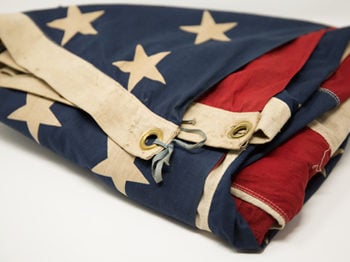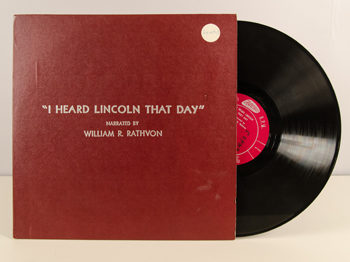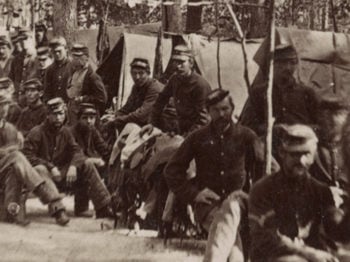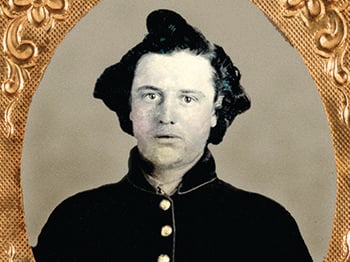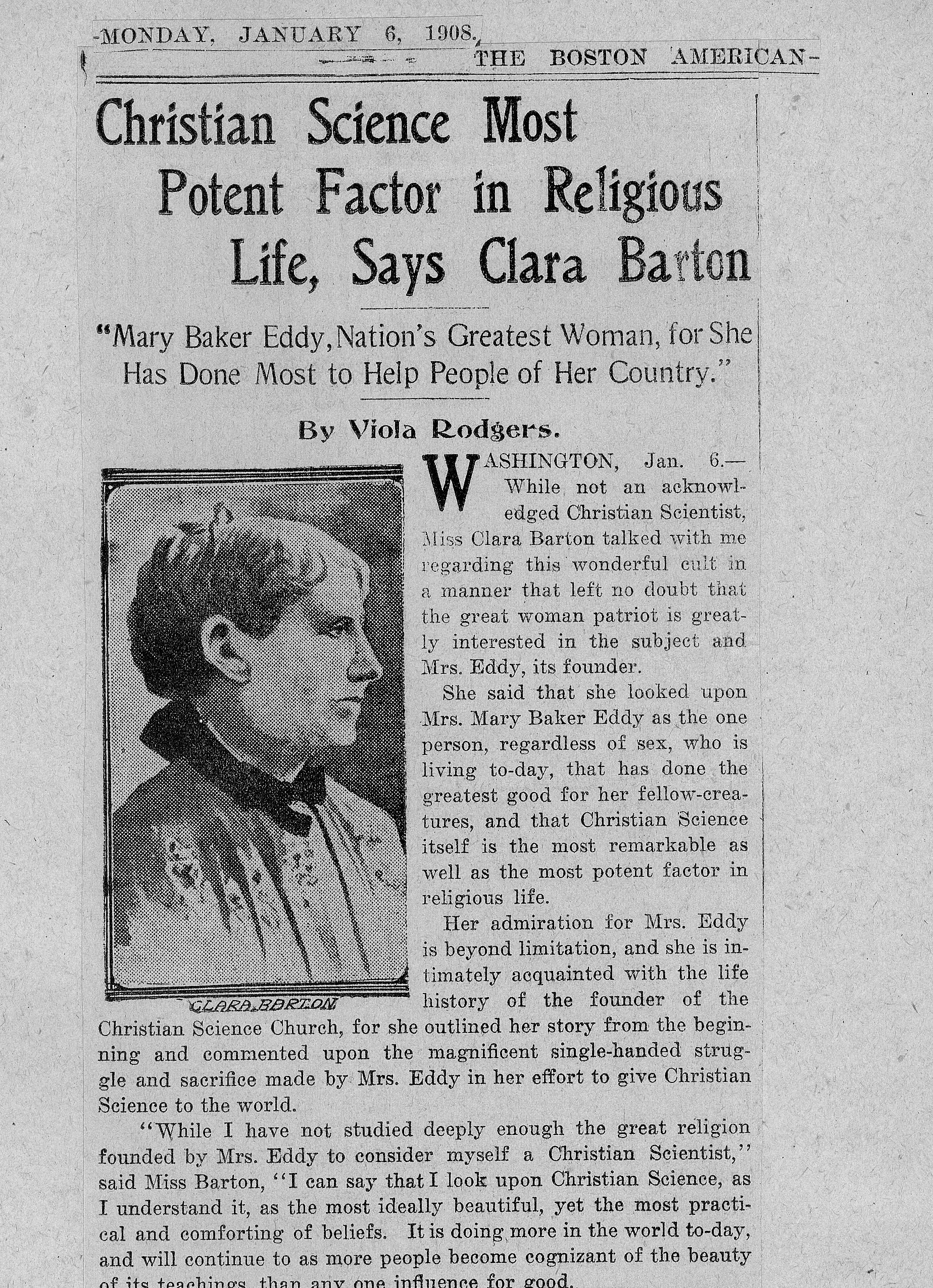
In recognition of Women’s History Month, Longyear Museum has selected from its collection a published interview with Clara Barton, a remarkable woman in her own right, in which she speaks out about her contemporary, Mary Baker Eddy— that she is the “nation’s greatest woman.” Clara Barton, known as the “Angel of the Battlefield” for her outstanding humanitarian efforts especially during the American Civil War, founded the American Red Cross in 1881, and devoted her life to helping others.
This interview was conducted by Viola Rodgers,1 and published on Monday, January 6, 1908, in The New York American, picked up also by The Boston American on that day, and subsequently reprinted in the January 11, 1908 issue of the Christian Science Sentinel and February 1908 issue of The Christian Science Journal.
In response to Miss Barton’s comments, Mrs. Eddy writes in that same issue of the Journal:
“… Miss Clara Barton dipped her pen in my heart, and traced its emotions, motives, and object. … Now if Miss Barton were not a venerable soldier, patriot, philanthropist, moralist, and stateswoman, I should shrink from such salient praise. But in consideration of all that Miss Barton really is, and knowing that she can bear the blows which may follow said description of her soul-visit, I will say amen, so be it.”
Christian Science Most Potent Factor in Religious Life, Says Clara Barton
“Mary Baker Eddy, Nation’s Greatest Woman, for She Has Done Most to Help People of Her Country.”
By Viola Rodgers.
Published Monday, January 6, 1908, in The Boston American
Washington, Jan. 6 — While not an acknowledged Christian Scientist, Miss Clara Barton talked with me regarding this wonderful cult in a manner that left no doubt that the great woman patriot is greatly interested in the subject and Mrs. Eddy, its founder.
She said that she looked upon Mrs. Mary Baker Eddy as the one person, regardless of sex, who is living to-day, that has done the greatest good for her fellow-creatures, and that Christian Science itself is the most remarkable as well as the most potent factor in religious life.
Her admiration for Mrs. Eddy is beyond limitation, and she is intimately acquainted with the life history of the founder of the Christian Science Church, for she outlined her story from the beginning and commented upon the magnificent single-handed struggle and sacrifice made by Mrs. Eddy in her effort to give Christian Science to the world.
“While I have not studied deeply enough the great religion founded by Mrs. Eddy to consider myself a Christian Scientist,” said Miss Barton, “I can say that I look upon Christian Science, as I understand it, as the most ideally beautiful, yet the most practical and comforting of beliefs. It is doing more in the world to-day, and will continue to as more people become cognizant of the beauty of its teachings, than any one influence for good.
“Our Greatest Woman.”
“Mrs. Eddy should have the respect, admiration and love of the whole nation, for she is its greatest woman. Her teachings spread love and good will among men, and a Christian Scientist cannot be a Christian Scientist unless he has eliminated greed and selfishness from his nature.”
Asked if she had read “Science and Health,” Miss Barton said that she had, and was much comforted by its teachings.
“Love permeates all the teachings of this great woman — so great, I believe, that at this perspective we can scarcely realize how great — and looking into her life history we see nothing but self-sacrifice and unselfishness. Never has Mrs. Eddy tried to bring her personality before the public. She has, on the other hand, isolated herself from the world, and her only motive in doing so, I firmly believe, has been in order to let her teachings reach the people, instead of herself.
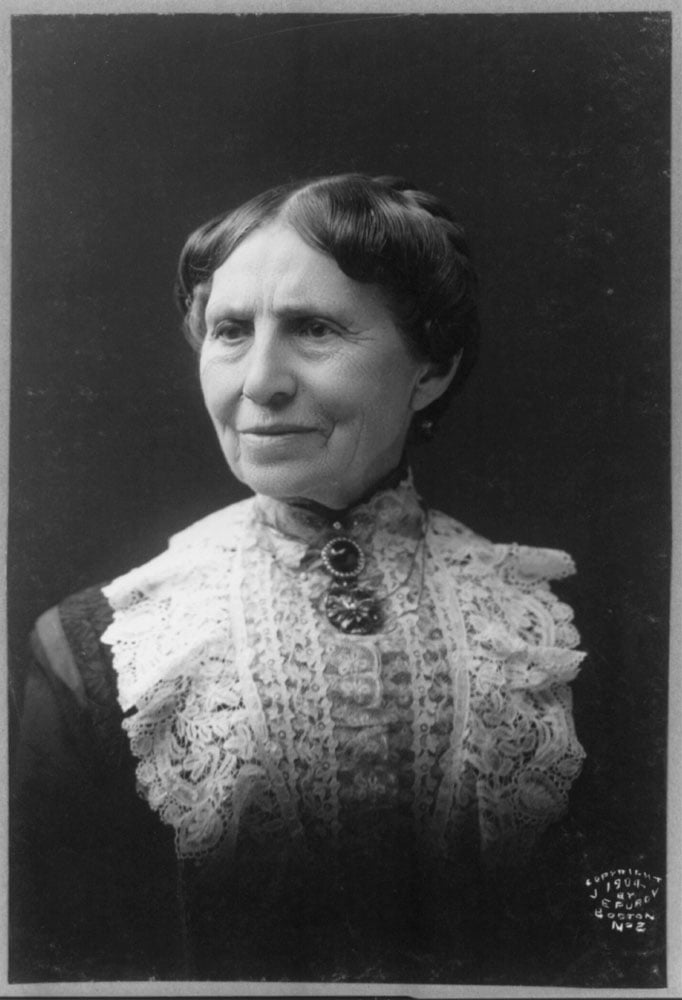
“She has never exploited Mrs. Eddy, but so profoundly has she been interested in bringing a great, joyous, healing and comforting religion to a people that she made directly for that object regardless of what criticism came to her in so doing.
“How beautifully has she managed the unfortunate trials of herself! Without malice, always with kindness and with charity that is almost beyond human comprehension, has this woman fought antagonism, and that only with love.
“And I say no one familiar with her life and her teachings can help but see the marvellous consistency and beauty of what she has given to the world in Christian Science.
“The Christian Scientists I have met all impress me with that same spirit of unselfishness that is characteristic of Mrs. Eddy. They are an intelligent, thinking people, and they impress me that their belief comes after careful and scientific investigation and conviction, rather than from hysterical evangelism.
“Most troubles are exaggera[t]ed by the mental attitude, if not entirely caused by them,” continued Miss Barton. “I have in mind the matter of age. Now, it has been my plan in life never to celebrate or make anything of birthday anniversaries, because that only depresses and exaggerates the passing of years. The mind is so constructed that we have become firmly convinced that after a certain length of time we cease to be useful, and when our birthday calendar indicates that we have reached or are nearing that time we become lax in our work and finally cease to accomplish, not because we feel in reality that we are no longer useful, but because we are supposed by all laws and dictums to have finished the span of life allotted to work.
Continue to Be Useful.
“Such a grave error! I have noticed it particularly among old soldiers. Why, you know, in attending many reunions of old soldiers, I have noticed that nearly the whole of their conversation is upon the passing of time and upon their ages. They seem to think it quite marvellous that they are even alive, let alone having in mind the doing of anything for their fellow creatures. It is not their fault, but the fault of the attitude of the world to the old in years.
“When a man has ceased to feel himself useful he is no longer useful, but I maintain that no one need feel that way just because he is fifty, sixty, seventy, eighty or even ninety or a hundred years of age. That is according to year standards.
“Many men at eighty are as capable of being useful to the world as they were fifty years before, perhaps not in the same way, and maybe in a much more important way, for life gives experience with its years that is of some account, if made use of.
“Birthday celebrations after one is ten are without any value, and, what is more, I verily believe that they are harmful. Let your life be counted by the milestones of achievement, and not by the timepiece of years. We would all be younger if that were so and would live to be much older than we do at the present time, when the props are pulled from under us by tradition and precedent, when the threescore and ten have been reached.
“To-day I feel as young in my own mind as I did a half century ago, and that’s because I have not folded my hands and given up work, and also given up the thought that I was just as useful as I was in other years.
“Christian Science gives one the mental attitude to live one’s life in accordance with that idea, I believe.”
